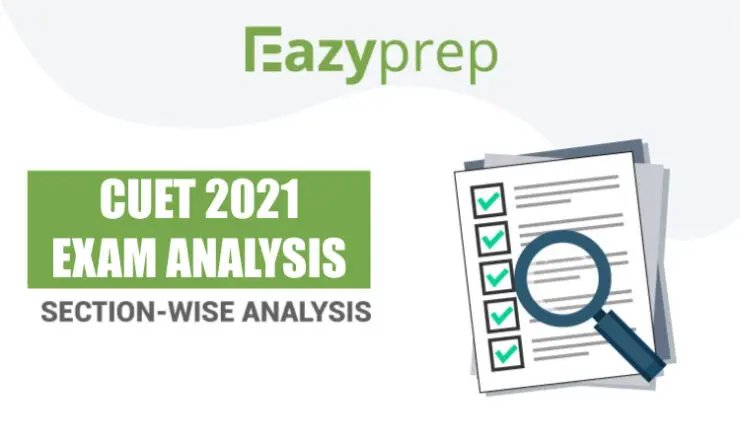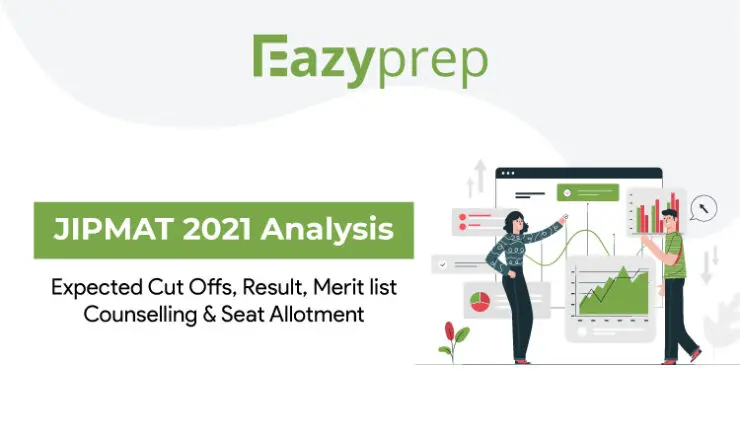![]()
JIPMAT 2020 was conducted on 20th June 2020. This year, the candidates had to attend the exam online from their homes due to the lockdown following COVID-19. JIPMAT or Joint Integrated Program in Management Admission Test is conducted for admission into a 5-Year Integrated Program in Management at IIM Bodh Gaya and IIM Jammu. The test is conducted by the National Testing Agency (NTA). The JIPMAT 2020 was comparatively easier than the previous years.

JIPMAT Eligibility Criteria
For applying for JIPMAT, you must fulfill the following eligibility criteria:
- Candidates of the General category must have passed class 12 and class 10 with at least 60% marks.
- Candidates of the SC/ST category must have passed class 12 and class 10 with at least 55% marks.
General Overview of JIPMAT 2020
The following is an overview of the exam:
| Number of Questions | 100 |
| Total marks | 400 |
| Duration | 2.5 hours |
| Marking Scheme | 4 mark for the correct answer-1 mark for the wrong answer |
| Number of sections | 3 |
| Mode | Online |
| Difficulty level | Moderate to High |
The three main sections of the JIPMAT Entrance Test are:
- Verbal Ability and Reading Comprehension
- Data Interpretation and Logical Reasoning
- Quantitative Aptitude
Section-wise analysis of JIPMAT 2020
Verbal Ability and Reading Comprehension
This was the easiest part of everything. The questions in this part followed the pattern from previous years, which was an advantage for the students who had practiced using the previous year’s question papers. Reading comprehension was the part of this section that was responsible for a lot of marks. Careful reading and analysis easily improved the score of a candidate. Other topics covered included synonyms & antonyms, para-jumbles, idioms & phrases, proverbs & prepositions, parts of speech, analogy, etc. The pattern and types of questions are as follows:
- Reading Comprehension
- Correcting sentences
- Filling in the blanks
- Identifying the errors
- Identifying grammatical components
A list of books that might be helpful while preparing for this section of the JIPMAT is given below:
- General English by Arihant Publications
- Easy to Learn General English Complete Book by Yashpal Sharma
- High School English Grammar by Wren and Martin

Data Interpretation and Logical Reasoning
JIPMAT 2020 followed the same pattern of previous year question papers for this section too. The section was overall easy, but there were a few questions that proved a little tricky for candidates. This made the difficulty of the section moderate. The areas from which questions were asked for this section are:
- Analogy
- Series
- Directions
- Non-verbal reasoning
- Series
- Syllogism
- Order and Ranking
- Blood relations
- Statement and Inference
- Clock
- Coding and Decoding
- Data Sufficiency
- Sitting Arrangement
- Puzzles
- Inequality
A list of books that might be helpful while preparing for this section of the JIPMAT is given below:
- Verbal and Non-Verbal Reasoning by Dr. RS Aggarwal.
- Reasoning Book for Competitive Examinations by Pearson
- A new approach to Reasoning By B.S. Sijwali & S. Sijwali Arihant.

Quantitative Aptitude
This section was a little tougher compared to the other sections as questions involving maths were asked. Though all the math questions were based on the basic knowledge you learned in school, students who had not taken the subject found it difficult. Candidates who had an interest in the subject found this section very easy. The overall level of difficulty for this section was thus moderate to high. Some of the questions were very easy while some others were tricky. The areas from which the questions were asked are:
- Number System
- Profit and loss
- Ratio and proportion
- Data Interpretation
- Time and Work
- Simple and Compound Interest
- Percentage
- Average and Allegation
- Functions
- Limits and Continuity
- Logarithm
- Trigonometry
- Probability
- Permutation, and Combination
A list of books that might be helpful while preparing for this section of the JIPMAT is given below:
- NCERT Textbook Class 10, 11, 12
- Quantitative Aptitude for Competitive Examinations by R.S. Aggarwal
- The Pearson Guide To Quantitative Aptitude For Competitive Examination by Dinesh Khattar

Analysis of previous year exam question papers is very important in preparing for any competitive exam, especially in the case of JIPMAT. It helps in understanding the pattern and the areas from which questions are asked. Hope this article helped you in understanding the details about JIPMAT 2020. All the best!

